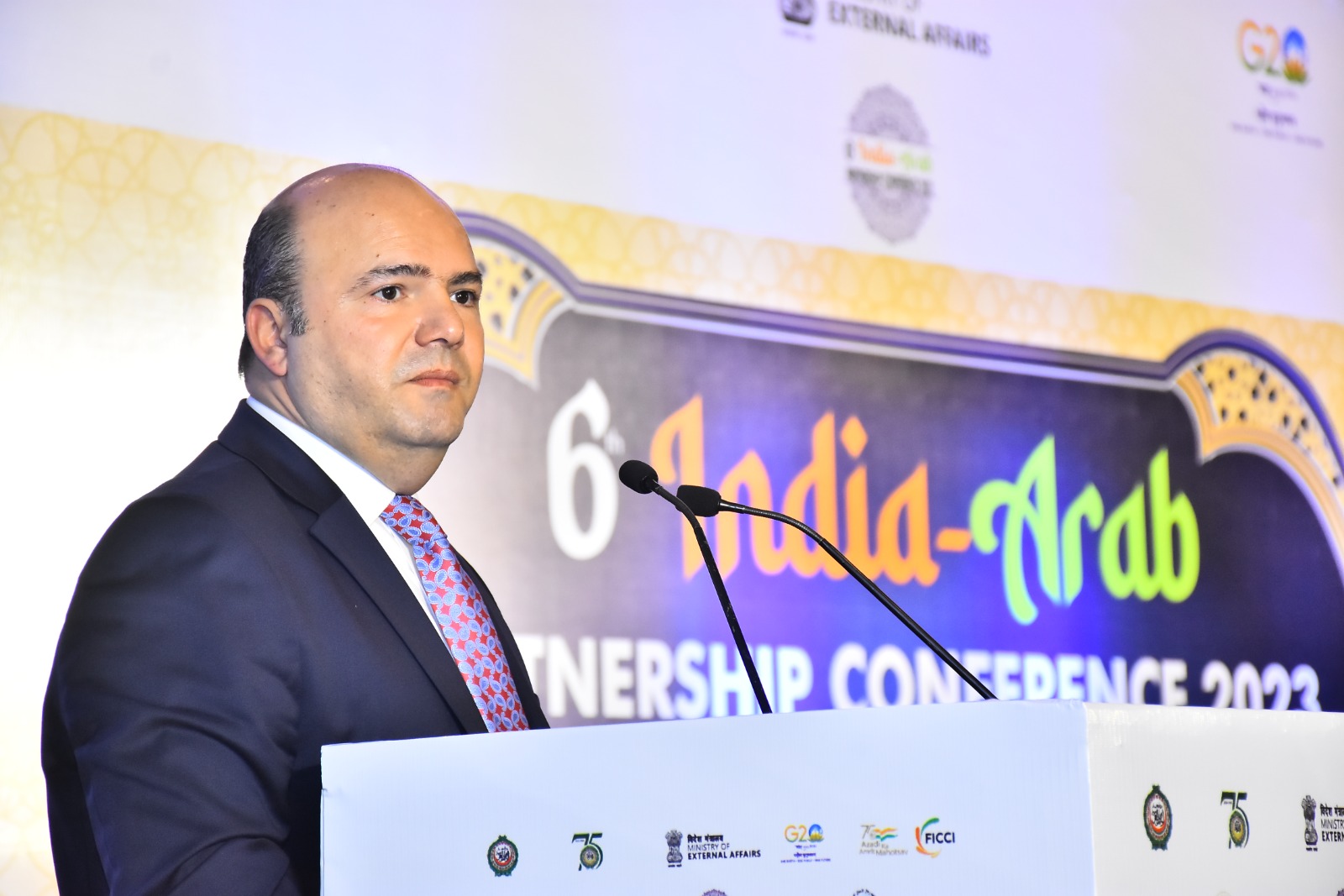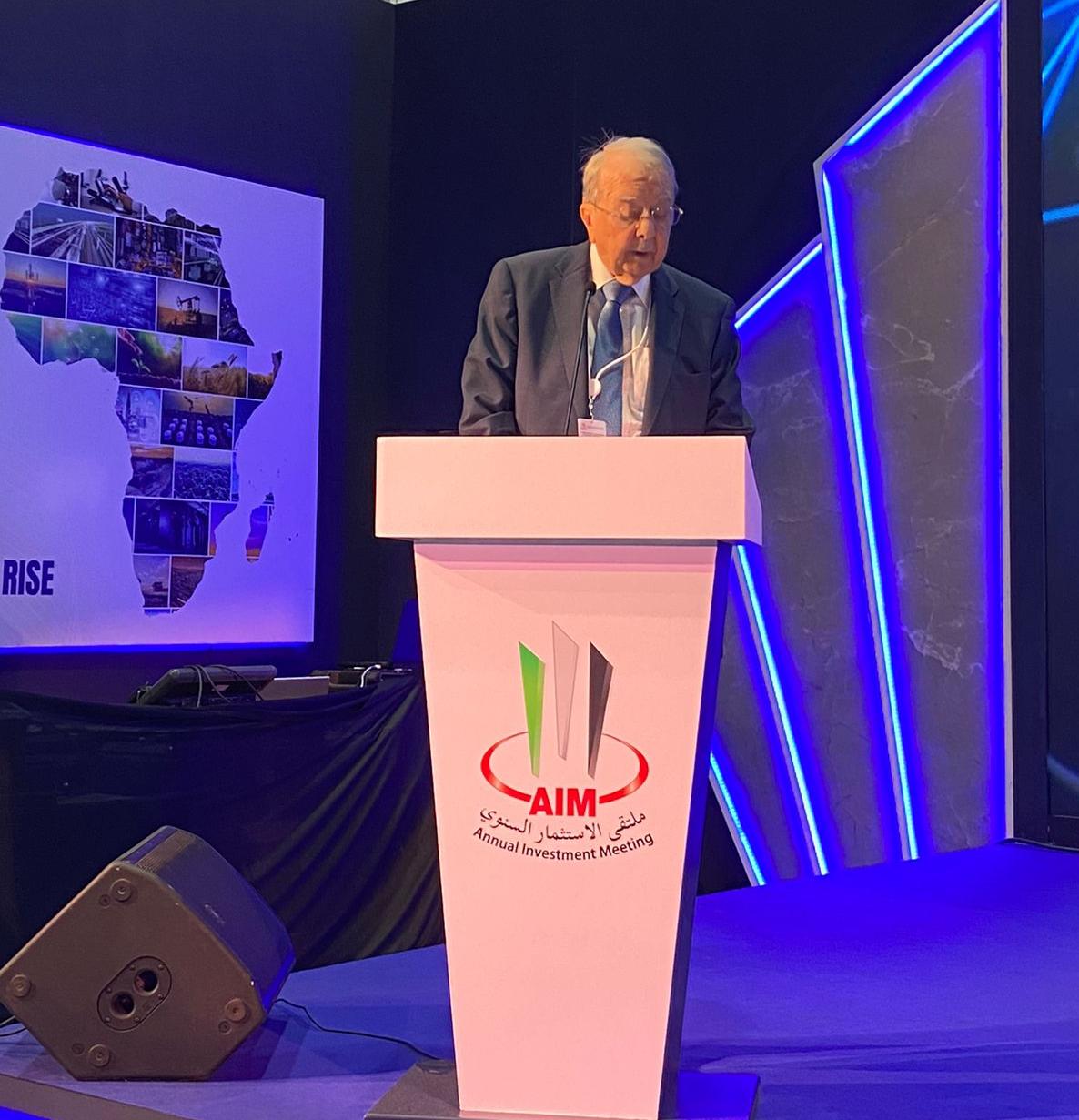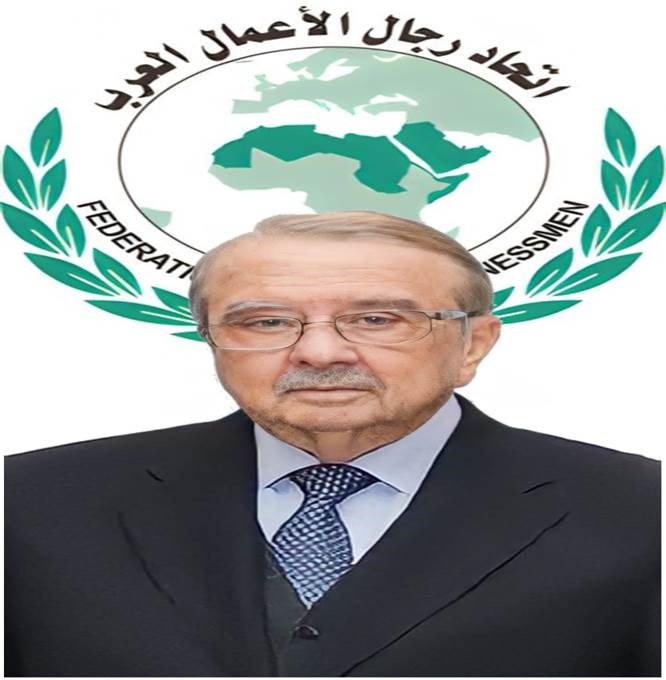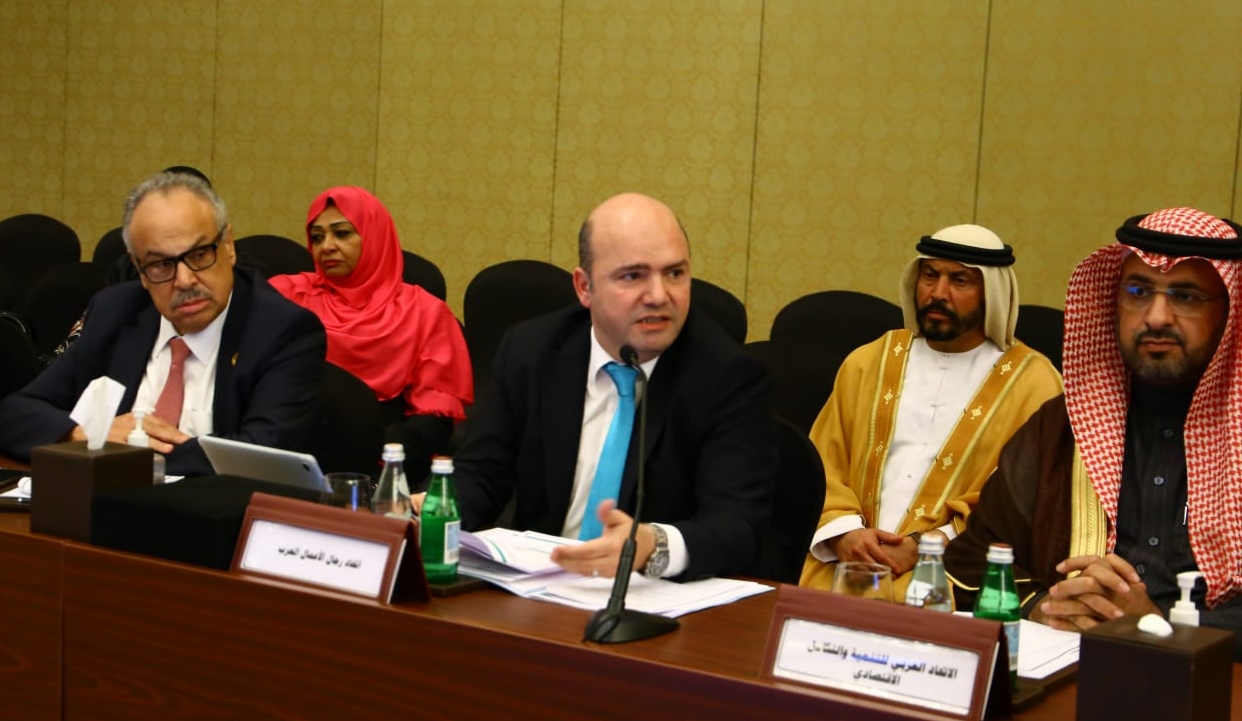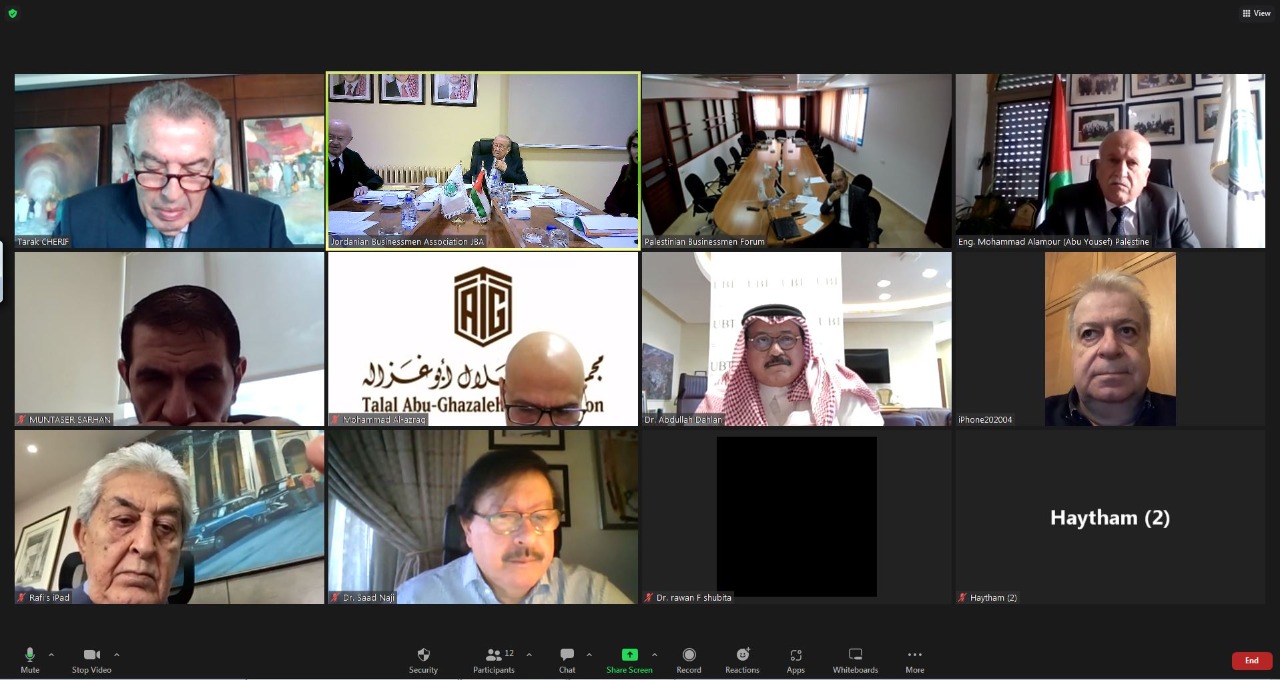

The forty-ninth session of the Arab Union of Arab Specialized Unions, which was held during the period of 7-8 / 11/2018 with the participation of more than 70 Arab federations, with the participation of the Union of Arab Businessmen, Amman, represented by the Director General of the Union Tariq Hijazi, who presented a working paper on the reasons for the low volume of intra-Arab trade in the meetings of the Committee for Development of Investment and Trade in the Arab countries.
The meeting was chaired by the Egyptian Minister of Awqaf in his capacity as Chairman of the Federation of Arab Endowments Agencies, which discussed the mechanism of supporting Arab investments, the investment opportunities available in the Arab world and the vision of the Arab Unions on the reconstruction and development in the Arab countries affected by the repercussions of the Arab spring revolutions. Work to establish joint Arab companies in a number of Arab countries. In the presence of the representative of Jordan to the Council of Arab Economic Unity, Economic Adviser at the Jordanian Embassy in Cairo, Engineer Hassan Al-Omari.
Tariq Hijazi said that during the meeting, the Union presented a working paper on the reasons for the low volume of intra-Arab trade, which fell despite the reduction of the tariff to zero, but did not achieve an increase in trade flows due to the lack of commitment of some Arab countries to remove all administrative, Fees and taxes of similar effect, as well as other administrative, political and economic constraints.
The Arab Free Trade Agreement (GAFTA), which was established in 1997, the volume and volume of Arab trade in recent years, the exceptions that accompanied the establishment of the region, and the reasons and constraints that caused the decline were also outlined.
Hijazi also pointed out that Arab trade faced great challenges, the biggest of which was the decline in oil prices and the unfavorable political and security conditions sweeping the region. Thus, the volume of trade in Arab goods and services decreased from 2145 billion dollars in 2014 to 5.7% of total global trade to 1707 billion dollars in 2015. 5.2% of world trade and $ 1592 billion in 2016 accounted for 4.7% of total world trade. As well as the decline of its share of the Arab output from about 78% to about 70% in 2015 and about 68% in 2016.
The working paper included several recommendations for activating the volume of inter-Arab trade, the most important of which is the establishment of a specialized department concerned with free trade area affairs in each Arab country, overcoming the obstacles to it and creating an effective supra-national authority within the framework of the Economic and Social Council or the Arab League Secretariat, The recommendations emphasize the need to provide data on markets and opportunities for export, import and related services from the transfer, storage, promotion and marketing, and the provision of diplomatic bodies In addition to the need to facilitate the movement of trade from the production areas to the areas of consumption by means of transport appropriate and suitable for the quality of the goods, whether refrigerated or non-refrigerated, and improve the specifications of containers packaging and packaging , Standardization of Arab standards and standards, and the development of transport infrastructure and crossings. Arab businessmen were given freedom of movement among Arab countries for their importance in the flow of inter-Arab investments, raising the pace of intra-Arab Arab trade and establishing joint Arab projects at the level of the private sector.

